General Water Hardness (GH)
WHAT DOES THE GENERAL HARDNESS MEASURE?
The General Hardness (GH) of your water measures the amount of calcium and magnesium ions in your water. Water with a low general hardness is considered soft. Water with a higher general hardness is considered hard.
HOW CAN I MONITOR MY WATER’S GH?
Discus require very soft water and there are numerous commercially available products that claim to reduce water hardness. However, before trying commercial products, there are some other methods you may choose to try. Before we go into detail about how to reduce the GH of your water, we suggest that you first test the GH of your tap water so that you have a starting point. The GH of your discus aquarium will vary depending on the reason why you’re keeping them. Note that the lower the GH of the water, the more unstable the PH. So although a lower GH may be necessary for some types of discus aquariums, make sure that it’s not lower than it needs to be. In order to breed, discus require very soft water with a GH between 1 and 3. Once your Discus are no longer fry and are in a separate rearing tank, you should raise the GH to 8-12 over a period of at least one week. Your young discus will develop much better in an environment potent with minerals. If you have no interest in breeding, then a GH of 8-12 provides a perfect balance between PH stability and mineral richness.
WHAT ARE WAYS TO REDUCE MY WATER’S HARDNESS?
Peat Moss
Peat Moss
A popular method for reducing GH is peat moss. Peat moss is available at most aquarium stores, and we wouldn’t recommend buying it from anywhere else unless you are absolutely positive that the peat is intended for aquariums. Peat moss naturally reduces your aquarium’s PH and GH. It also helps with binding some heavy metals in the water, thus reducing the GH even further.
Peat can be administered into the aquarium in several ways. For example, it can be placed into an external filter in a fine mesh bag; however, it will need to be replaced regularly. In conjunction with the peat in your external filter, you may choose to add peat moss to your water before adding it to your aquarium. Place some peat in a fine mesh bag and let it soak in the water for approximately 1 hour before you put it into your aquarium. Although peat moss will make your water’s color light brown, this discoloration will not harm your discus. While the precise amount of peat moss to be added to your aquarium is debatable, in general you should simply add enough so that you can make a bed that your water can run over or through before it re-enters your aquarium.
Reverse Osmosis System
To reduce GH, you can add reverse osmosis water to your tap water before putting it into your aquarium. A Reverse Osmosis (R.O.) System is a machine that connects directly to your tap and purifies your water to 1 GH or less. However, R.O. water alone isn’t suitable for discus, as it depletes the water of vital nutrients that discus need. Therfore, mix R.O. water with normal tap water. The amount of R.O water that you must add to your tap water will vary depending on the type of aquarium you’re running. However, the following is one commonly used equation is:
(Desired GH / Current Tap GH) x 100 = % of tap water added to R.O water.
However, RO systems are not necessary. RO filters are very expensive. You can expect to pay anything upwards of $250 at the very least for a very low grade R.O unit.
RO units also work very slowly. A cheapter RO systems requires at least an hour for 6L of water. Some people spend over $1,000 on their RO unit, yet it still filters no more than 15-20L per hour.
Rain Water
Although using rain water in your discus aquarium may be risk, it can be safe if the right measures are taken. Clouds act as a natural purifier for water, and thus the GH of rain water will generally be quite low. Before you consider adding any rainwater to your aquarium, there are several precautions you must take. First, do not collect the first several minutes’ worth of rainfall, as this stage is considered to have more toxins than the later parts. Waiting a few minutes will also help to wash away any loose debris in your gutter that may otherwise get caught in your collection container. Another thing to remember is that if you’re collecting water from drains or from a rain water tank,keep your gutters clean. There are numerous contaminants in your gutters that could severely deteriorate the water, such as rotting or decaying leaves or animals. Once you have collected the rain water, agitate it for at least 24 hours before adding it to your aquarium. You can do this by adding an air stone or filter to your storage containers.
Discus Buffer
Discus buffer is a commercially available form of water softener. Discus buffers replicate the conditions that discus encounter in the wild. They generally buffer the water to anywhere between 5.8 – 6.8 PH and slightly reduce the general hardness. Note that this is commonly used in conjunction with an acid buffer if you need to achieve a lower PH.
Blackwater / Peat Extract
This is a liquid form of peat moss. It reduces the GH and KH of your water by 1 each time you add it to your aquarium. Depending on the brand, you usually add peat extract to your aquarium once every two weeks. Blackwater / peat extract will discolor your water; however, this will not harm your discus. Also, if you’re using any chemical filtration like Seachem Purigen, the extract will probably be absorbed by those products and therefore rendered useless. Therefore, first remove teh chemical filtration before you use blackwater or peat extract.
Driftwood
Driftwood
Although it is not the most effective form of water softener, driftwood will soften your water slightly, and generally the more driftwood you add to an aquarium, the softer the water becomes. While it is not suitable to use driftwood alone as a means of water softener, it is helpful nonetheless.
Increasing General Hardness
Although most people need to reduce their water’s GH, people in some areas need to increase the GH. Use commercial products or rocks if you are only wanting to raise the general hardness slightly. Remember, raising the GH is much easier than reducing it.
QUESTIONS
- Why is it often important to reduce your water’s GH?
- What level of GH is necessary when breeding discus?
- What level of GH is best for young discus’ growth?

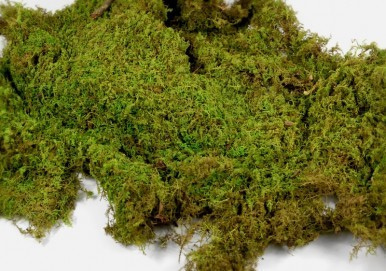
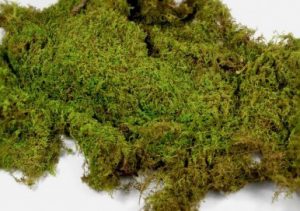
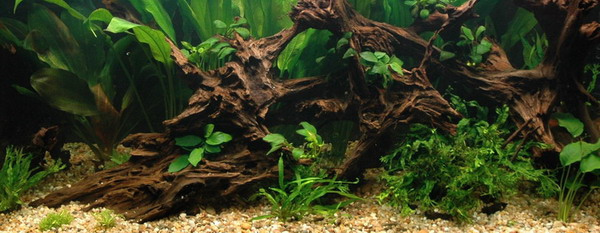
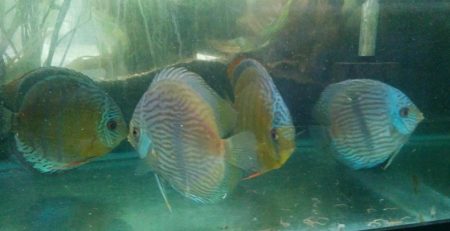
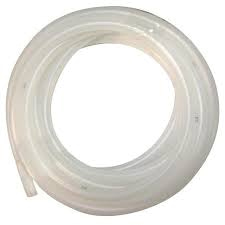
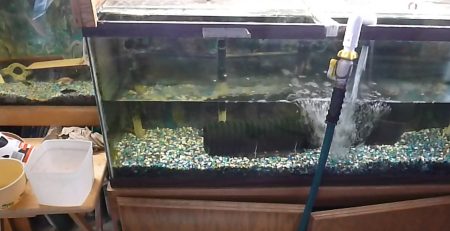
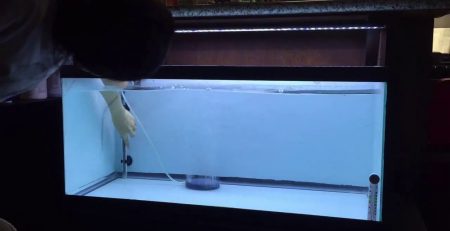
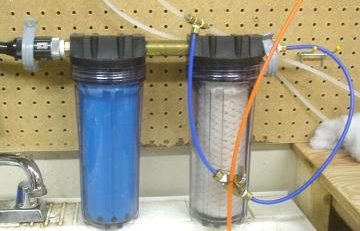
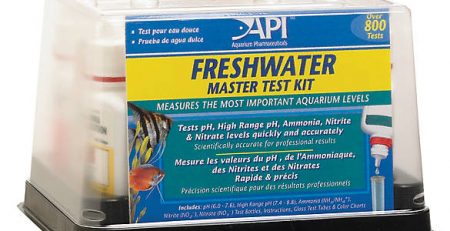
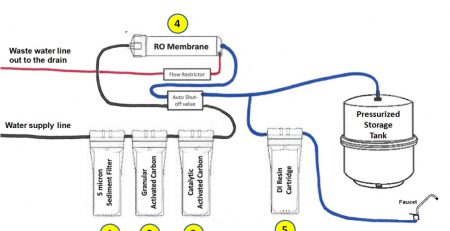
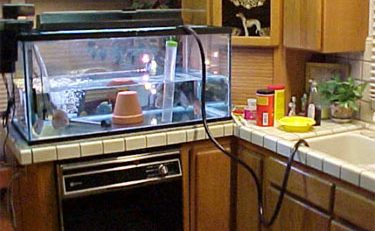
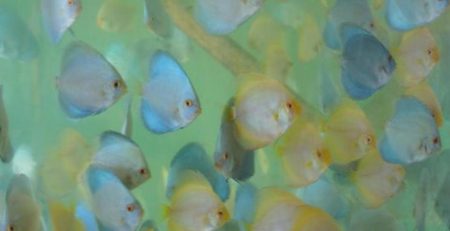
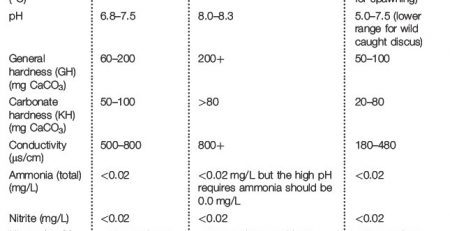
Leave a Reply
You must be logged in to post a comment.